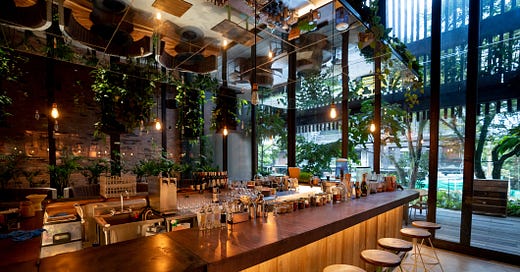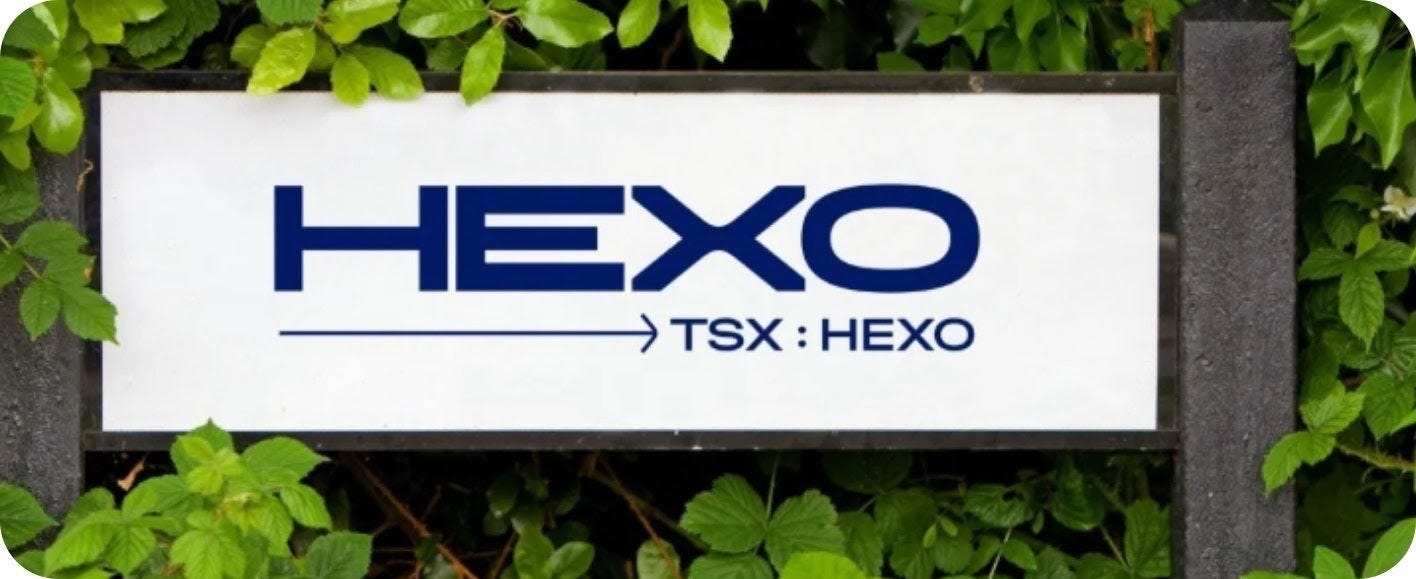Cannabis Consumption Lounges
Can Las Vegas lead the rest of the world when it comes to consuming cannabis...
Welcome to Four PM — a newsletter that provides the top cannabis industry news from Canada to California.
In Today’s Issue 💬
→ Cannabis Lounges In Vegas. 🎉
→ Growing Cannabis In Brazil. ✔️
→ The Cannabis Deal Gone Wrong. ❌
Nevada Gets Ready For Cannabis Lounges
Cannabis lounges are coming to Las Vegas and beyond in the state of Nevada...
In mid-2022, cannabis consumption lounges are expected to open in Nevada.
“This is going to be an industry that is going to pay for itself, and then hopefully be able to fund education in a way that I think we’d all like” Assemblyman Steve Yeager (D-Las Vegas), who introduced the bill said.
The prospect of a 2022 launch came to light when the state’s Interim Finance Committee approved funding to assist the Cannabis Compliance Board in overseeing the new lounges, according to the Nevada Independent.
Ideas Are Contagious… 🌎
49.5 million people from all around the world came to visit Las Vegas in 2018.
A large percentage of this group will have the opportunity to try cannabis lounges.
This could cause a major ripple effect as people from all around the world get to experience this model for themselves.
The rundown...
In June 2021, the Nevada state legislature approved a bill that created two types of licenses for consumption lounges.
Unfortunately, Nevada’s casinos and hotels won’t allow cannabis use on-site, however, the good news is that cannabis lounges will have options for local residents, and for any of the tourists who are over the legal age.
So far, 59 cannabis retailers in the region have expressed interest in opening cannabis consumption lounges.
Our Take
This model exists all across the world today for alcoholic beverages today.
With alcohol, this is an existing standard and with cannabis, we need to aim to make this the new standard such that consumers can have a place to consume cannabis with educated staff on hand.
First things first, however, the current regulations need to change in several regions such that this model can exist.
Progress For Cannabis In Brazil
The largest market in South America is becoming much more open to cannabis…
In 1830 Rio de Janeiro made it illegal to cultivate, consume or possess cannabis, making Brazil the first nation in the world to impose such laws.
Today, however, several cannabis companies are seeking to establish a presence in what is the largest Latin American country — Brazil.
With Canadian producers having 10x the necessary supply of cannabis to meet current consumer demand, a growing list of Canadian cannabis companies is also looking outside of Canada.
Progress….
→ In 2014 the first authorizations for medical cannabis were made.
→ In 2015, the National Health Surveillance Agency allowed patients to purchase medical cannabis products with over 0.2% THC.
→ In 2019, Brazilian lawmakers allowed cannabis products to be sold in Brazilian pharmacies and imports to be made in bulk.
→ In 2020, the number of medical cannabis patients increased over 600% from 2019 with over 12,000 new patients.
The challenges…
One of the biggest challenges the cannabis industry faces in Brazil is not being able to grow cannabis.
Currently, all of the cannabis provided to medical cannabis patients in the region is imported.
Problem solved?
In June, a proposal was approved by a congressional committee that would finally allow producers to cultivate cannabis in Brazil.
Brazilians are waiting for its Senate to approve this bill, however, the required signature of Brazilian President Jair Bolsonaro is by no means guaranteed.
Bolsonaro is viewed by many as a very conservative politician, such that his political viewpoints might be some cause for concern.
“If you are authorizing the sale, why not cultivation?” Center-right lawmaker Fausto Pinato, a member of the farm caucus, said to Reuters.
Future outlook 🔭
Brazil has an ideal climate for cultivating both THC-producing cannabis plants, as well as hemp plants for industrial purposes.
It’s estimated that 3.10788 million square kilometers of land would potentially be suitable for cultivating hemp or cannabis in Brazil.
Brazil could become the world's largest producer of hemp with 670 square kilometers of hemp planted in China, which holds the current record.
Our Take
Once there is some momentum, a large number of changes can occur in a short period of time.
We are seeing this today in Brazil, and as more and more nations around the world legalize cannabis.
Can Hexo Afford Redecan?
Hexo’s declining share price is cause for concern in their deal with Redecan…
A term that has become synonymous with the Canadian cannabis industry in recent times is consolidation.
Earlier this year, Canadian producer Hexo went on a spending spree…
In total, they spent $1.2 billion CAD In buying competitors — all within the first 6 months of 2021.
A Tale Of Three Parts….
In February, Hexo acquired Zenabis — a company once valued in the billions, however, Hexo acquired Zenabis for $185 million USD in an all-stock deal.
In May, Hexo once again acquired a competitor — this time taking out 48 North in an all-stock deal valuing 48 North at $41 million USD.
Last but not least, in June Hexo announced their plans to acquire one of their largest competitors, Redecan in a deal worth $730 million USD.
Having already completed the acquisition of Zenabis & 48 North — Hexo would become the largest Canadian producer based on market share should they complete the acquisition of Redecan.
The Problems…
Despite Canadian cannabis sales reaching a record high of $319 million CAD in May 2021, several Canadian cannabis producers including Hexo are still struggling to generate profits.
Consequently, Hexo’s share prices are on track to reach record lows which poses a significant problem in their ability to acquire Redecan.
Hexo shares were priced at $7.53 USD per share when this deal was announced, however, in the 3 months since Hexo’s share price has declined by over 66% to $2.55 USD per share.
Future Outlook 🔭
Shareholders of Redecan & Hexo will be asked to vote on the proposed transaction shortly.
For shareholders of Hexo, this deal makes sense — acquiring a competitor for $400 million in cash, and what is now $174 million USD in stock.
This opposed to the original deal that was signed less than 90 days ago for $400 million in cash + $525 USD million in Hexo stock.
Additionally, should Redecan shareholders agree to complete the transaction, they would be unable to sell any shares of Hexo for 24 months after the closing of the transaction.
Our Take
Redecan is arguably one of the most successful Canadian cannabis producers in the last 3 years, and it would be a shame to see all of their employees' rewarded by receiving a fraction of the value they had initially agreed to.
With these developments, it seems likely that they will either need to change the terms of the transaction, or Redecan could remain independent.
For more like this, subscribe to Four PM today to receive the next edition:
If you gained value from this edition of Four PM, feel free to share it with the world. 🌎












